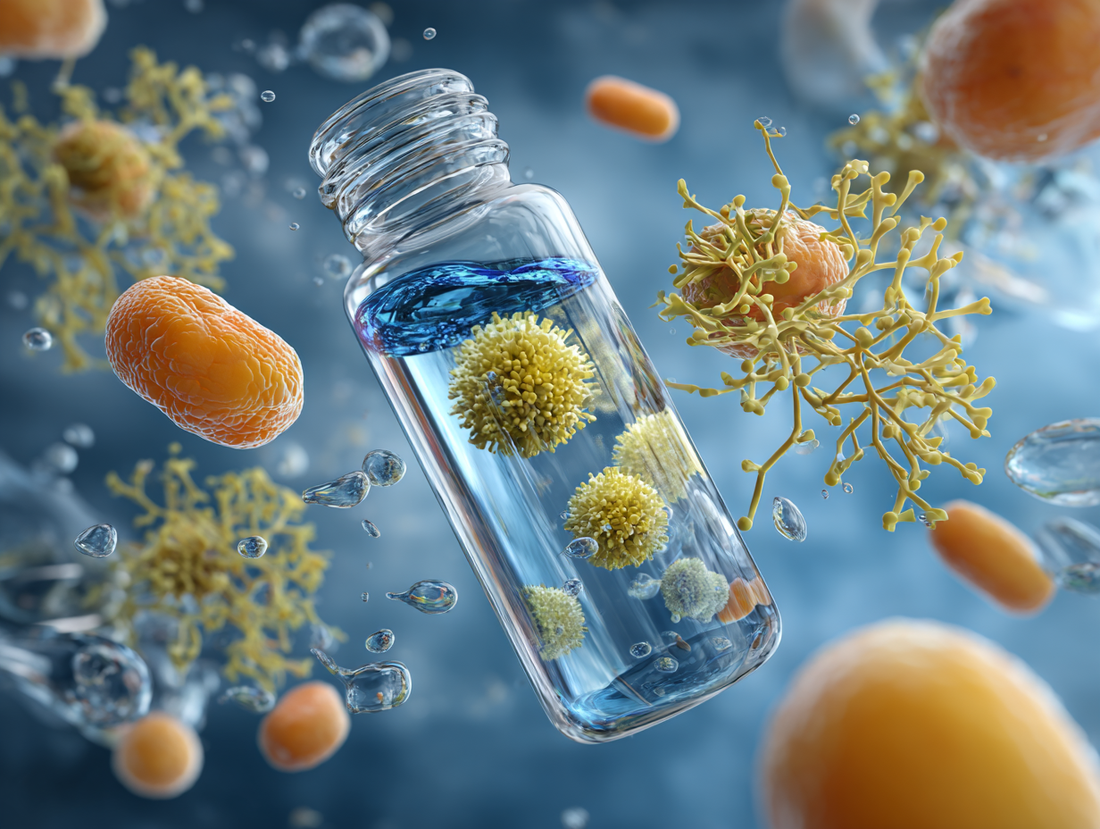
Why Electrolytes Matter, Even for Non-Athletes
Partager
When you hear “electrolytes,” your mind might jump to sports drinks, marathon runners, or sweaty gym sessions. But in reality, electrolytes play crucial roles in your body all day long. Whether you’re working in an office, doing household chores, or just trying to stay sharp and energetic. Let’s break down what they do, why they matter, and what happens when they’re out of balance.
What Are Electrolytes?
Electrolytes are minerals that carry an electrical charge when dissolved in body fluids. Common ones include sodium, potassium, magnesium, calcium, and chloride. They help your body regulate fluid balance, send nerve signals, and keep muscles working properly.
How They Work (in Simple Terms)
Think of your body as a system of cells surrounded by fluid. To stay healthy, your body must keep a delicate balance:
- Fluids: Electrolytes control how much water is inside vs. outside your cells.
- Signals: They help nerves and muscles send and receive electrical impulses.
- Balance: They maintain pH levels and help transport nutrients in, waste out.
Without electrolytes, your cells couldn’t communicate or contract properly.

Everyday Life: Why They Matter Beyond Sports
Even if you’re not an athlete, electrolytes affect daily life:
- At work, staying hydrated with electrolytes can reduce brain fog and headaches.
- In hot or dry environments, you lose minerals through sweat and breathing.
- Stress, poor sleep, or limited diet can also deplete your reserves.
Because your body uses electrolytes constantly, keeping a steady supply supports energy, focus, and overall well-being.
What Happens When They’re Low
When electrolytes dip too low or become imbalanced, you may notice:
- Muscle cramps or spasms
- Fatigue or low energy
- Dizziness when standing up
- Headaches or brain fog
Severe imbalances can be dangerous, but even small shifts make everyday life harder.
Replenishing Electrolytes
Restoring balance helps your body:
- Recover from muscle tension or cramps
- Maintain stable energy throughout the day
- Think clearly and stay focused
- Tolerate heat or long hours better
In summary, Keeping Electrolytes in Check
- Eat a varied diet with greens, fruits, nuts, and beans.
- Hydrate smartly: pair water with electrolytes during heat, stress, or after exercise.
- Listen to your body: cramps, fatigue, or dizziness may signal it’s time to replenish.
- Electrolytes aren’t just for athletes — they’re for anyone who wants to feel steady, clear, and balanced in daily life.
Further reading:
- Healthline – Electrolytes: Functions, Imbalance, and Sources
- MedlinePlus (U.S. National Library of Medicine) – Fluid and Electrolyte Balance
- Medical News Today – Electrolyte Imbalance: Causes, Symptoms, and Treatment
-
Labcorp – What Are Electrolytes?
- Cleveland Clinic – Electrolyte Imbalance: Symptoms and Causes
- UPMC HealthBeat – How Low Electrolytes Can Affect You
- NCBI (National Center for Biotechnology Information) – Electrolyte Imbalances (StatPearls)
